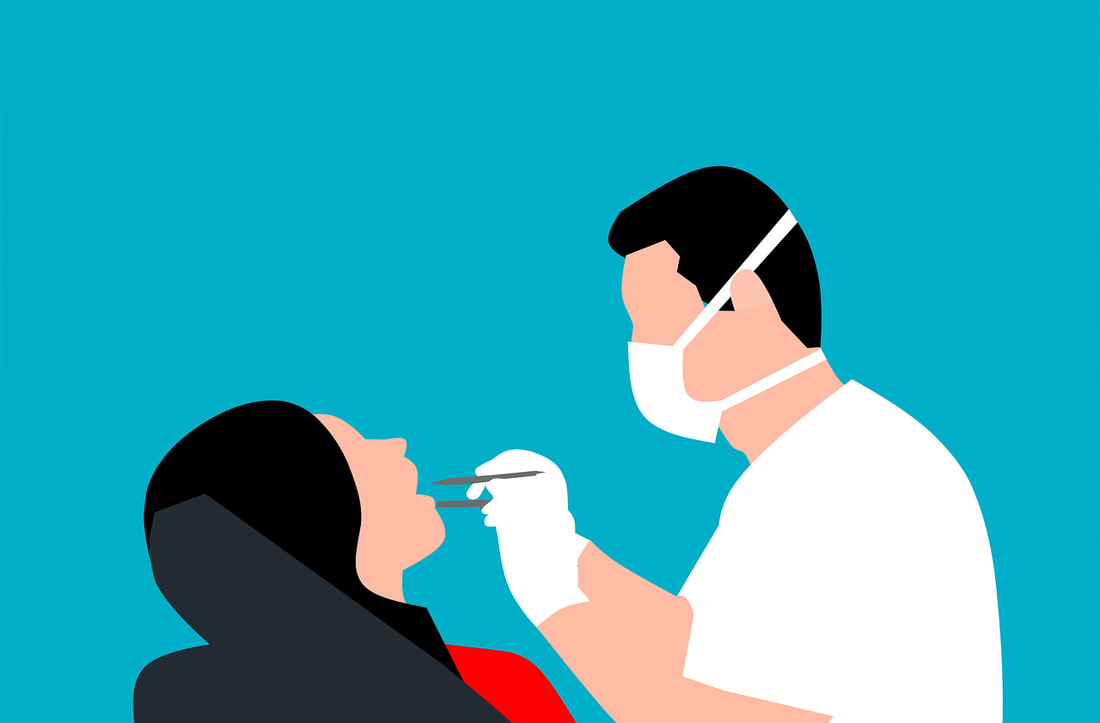|
When nerve pain shows up, finding a neuropathy doctor is key. Not all doctors in this field are the same. Look for a skilled neuropathy doctor with the right traits. They should know a lot about nerve conditions and focus on quality neuropathy treatment. Finding a great nerve care doctor is important. They're not just good at what they do; they care deeply about getting you healthy. They have special skills, really care about their patients, and always learn new things in nerve care. Key Takeaways
Neuropathy comes from nerve damage. It shows up in many ways and brings different symptoms. The deep knowledge of a neurologist is key to figuring out the causes of neuropathy. They also find the right ways to treat it. People with neuropathy often feel neuropathic pain because of the nerve damage. This pain can be light or very bad. It is important for experts to know exactly what symptoms someone has. This helps them diagnose quickly and stop the nerves from getting worse.
“Addressing neuropathy effectively requires a comprehensive understanding of its origins and symptoms, as well as a thoughtful, patient-centric approach to therapy.”https://www.youtube.com/watch?v=Arukf5l2D0Y Seeing a specialist in neuropathy is important if you have nerve damage. They provide care that is aimed at making you feel better as well as being healthy in the long run. There are many types of neuropathies, each with its own causes and ways to treat it. This shows why specialists need to really know their stuff and make care plans that fit each patient. Neuropathy Doctor's Credentials and Specialization Finding the right neuropathy doctor is crucial for effective treatment. Patients should look for professionals with advanced training and certifications. These credentials prove their expertise in neuropathy care. We'll look at the education and awards of top neuropathy professionals. This shows why they are important in treating patients. Educational Background Neuropathy doctors start with a medical degree, then go through a neurology residency. During residency, they learn a lot about nerve disorders through practice. A board-certified neuropathist has passed tough exams to show their skill in neurology. Certifications and Fellowships Doctors get extra training in neuropathy through fellowships. This is where they learn new ways to treat patients. A fellowship-trained neurologist is highly devoted to providing the best care. They keep learning to specialize further. Specialized training shows a doctor's commitment to understanding neuropathies deeply. This offers patients advanced expertise. Professional Memberships Joining neurology groups means a doctor stays current with new research. They learn about new treatments and standards from other neurologists. This helps them keep learning and working with peers.
Experience and Expertise in Neuropathy Treatment When looking for neuropathic treatment options, consulting a seasoned neuropathy specialist is key. They have deep knowledge in nerve pain management. This lets them offer tailored treatments for each patient's needs. An experienced neuropathy doctor's vast knowledge greatly improves patient results. They use the newest, most effective ways to treat neuropathy. By working with such a doctor, patients gain:
Patients often feel happier and do better with doctors who know a lot about treating neuropathy.Choosing a neuropathy specialist with lots of experience means getting personal, effective care. This makes it crucial for patients and their families to look at a doctor's success and knowledge area when seeking help. Multidisciplinary Approach to Neuropathy Care Embracing a holistic nerve care strategy involves integrating various medical specialties. This creates a comprehensive neuropathy treatment plan. It addresses the complex needs of neuropathy patients. By bringing together professionals from different fields, patients receive a well-rounded approach. It not only targets symptoms but also enhances overall well-being. Incorporating Physical Therapy Physical therapy is key in treating neuropathy. Therapists use techniques that help improve mobility, alleviate pain, and strengthen muscles. Neuropathic conditions can greatly affect these areas. Regular sessions can reduce symptoms and improve life quality. Tailored exercises and therapies are used. Working with a Dietary Consultant As you know, nutrition is crucial in managing neuropathy. A dietary consultant creates meal plans that boost nerve health. They focus on nutrients that support nerve repair and reduce inflammation. This collaboration is vital in a comprehensive treatment plan. Dietary choices greatly influence neuropathy's progression and symptoms. Partnering with Pain Management Specialists Managing pain is key in neuropathy care. Pain management specialists offer various treatments. They recommend traditional medications and innovative therapies like nerve blocks or electrical stimulation. Their involvement ensures pain management is strategic and sympathetic. They cater to each patient’s unique pain experience. This integration of diverse specialties highlights the effectiveness of holistic nerve care. Every aspect of the patient's health is covered. This collaborative strategy treats symptoms and promotes the long-term well-being of neuropathy sufferers. Patient Testimonials and Success Stories The stories from patients who have had neuropathy treatment are very helpful. They look for trusted neuropathy specialist reviews to know what to expect. These stories are more than just happy endings. They prove how satisfied patients are and how well treatments work. "Finding the right specialist for my nerve issues seemed daunting until I read a series of success stories from past patients. Recognizing the consistent positive outcomes they experienced gave me immense confidence to proceed with my own treatment." - Actual patient feedbackTestimonials share how well symptoms were managed and the kindness patients received. Patients not only trust the doctors' skills but also their caring attitude.
These success stories show how the right doctor can change lives. They play a big role in building doctors' reputations. They also help patients choose their treatment with hope for a better future. Approachability and Communication Skills of a Neuropathy DoctorIn the healthcare field, the relationship between a doctor and a patient is very important. A neuropathy doctor who is easy to talk to and good at communicating can provide care that is both medically sound and supportive on an emotional level.
This section talks about how certain ways of communicating and being empathetic can improve care for patients. Bedside Manner and Empathy Compassionate neuropathy care begins with the doctor's bedside manner. Being empathetic can lower a patient's anxiety and make them feel valued. This fosters a trusting relationship, vital for good outcomes. Clear Communication and Patient Education Good doctor-patient communication is more than just talking. It makes sure patients understand their conditions and treatment choices. This clarity breaks down complex medical terms and helps patients take an active role in their healing. Follow-Up Care and Accessibility Continuous support and simple follow-up care are key to lasting nerve health. It's important for patients to easily get help after their appointment and receive updates to their treatment as needed. This long-term support is critical for effective healing. This approach helps create a positive place for care. It also meets the specific needs of neuropathy patients, making sure they feel backed on their healing path. Staying Abreast of the Latest Neuropathy Treatments A skilled neuropathy doctor knows adding innovative neuropathy therapies to their toolkit is crucial. They follow the latest advances in technology and treatment. This means constantly learning through continuing medical education. This way, they can give patients advanced and effective treatments. It's key to rely on the newest research and breakthroughs for nerve care. Experts see how new treatments can change neuropathy care. For those dealing with neuropathic pain, a doctor who knows the latest methods offers hope. This comes from their commitment to ongoing professional development and training. So, patients get access to the very best in medical science. For a neuropathy specialist, continuous learning is about more than just keeping up. It's about a future where new discoveries can improve lives. They focus on the latest research and apply evidence-based nerve treatment protocols. This shows their commitment to offering hope through modern medicine to those with neuropathy.
0 Comments
Dental implant technology has made huge strides recently. These implants are a top choice for fixing teeth today. They blend strength and beauty, improving smiles and oral health. Unlike other options, they merge with the jawbone uniquely. This bond provides a strong, final fix that looks and works like real teeth. High-quality dental implants are vital for their longevity and effectiveness. They greatly benefit patients' oral health. For those wanting to bring back their full smile, these advanced implants can change lives. Key Takeaways
Defining What Dental Implants AreDental implants replace missing teeth through advanced technology. They have a titanium post that goes into the jawbone, working like a root. This foundation holds up dental pieces like crowns, bridges, or dentures. The Advantages of Choosing Dental ImplantsChoosing dental implants has many upsides. They're stable and don't change the teeth next to them unlike dentures or bridges. This keeps the natural teeth as they are and helps keep the mouth healthy. Also, implants last a long time and help prevent the jawbone from weakening when teeth are gone. Comparative Benefits: Dental Imiles vs. Other Dental Prosthetics
Factors that Contribute to the Longevity of Dental ImplantsThe implant lifespan is affected by key factors. When optimized, these improve the dental success rate a lot. Knowing these factors helps everyone make better choices about implant procedures.
An effective osseointegration process is crucial. It helps the implant attach solidly to the jawbone. This affects the overall implant lifespan. This biological step is vital for the implant's stability and its ability to handle weight. It plays a big role in the long-term success of dental implants. Managing these factors well can make dental implants integrate successfully. This boosts their life span and keeps the mouth healthy.To sum up, getting a successful dental implant takes more than just the procedure. It involves using the best materials, understanding osseointegration, maintaining oral hygiene, and working with a skilled dentist. Identifying High-Quality Dental Implants When looking into dental implants, it's key to know about the materials, how they join with the bone, and where they come from. Choosing top-quality implants affects how well and how long they work. Materials Used in Dental Implants The materials for dental implants are important for their fit and life span. Titanium and zirconia are top picks because they're tough and join well with bone. These strong materials are safe for the body, reducing the chance of rejection. Understanding the Osseointegration Process Osseointegration is how the implant becomes one with the jawbone. This bond is key for the implant to stand up to chewing. The quality of osseointegration decides if the implant will last and work well, making it crucial. The Role of the Dental Implant Manufacturer Picking the right maker is vital for dental implants. Trusted dental brands like Straumann and Nobel Biocare stand out for their detailed research and high standards. They make sure that every implant is tested thoroughly, offering safe and effective options for patients. It's important for patients and dentists to know where their implants come from. Getting implants from trusted dental brands with high osseointegration quality protects your health. It also helps ensure the best results for your dental care. The Importance of a Skilled Dental ProfessionalThe success of dental implant procedures heavily relies on the implant specialist's expertise and precision. Highly skilled and certified dentists ensure the professional implant placement brings the best results for patients. Their in-depth training and certification are key in handling the complexities of implant surgery. This impacts both the immediate and long-term outcomes of the treatment.
Choosing the right dental professional is as crucial as selecting the implant itself. Key Aspects of Dentist Expertise in Implant Placement:
Evaluating the Cost of Dental Implants: Investment in Your Health Looking into dental restoration involves understanding costs and health benefits. The idea of dental implant investment might seem big at first. But when considering the long-term savings from less maintenance and fewer replacements, costs appear in a new light. Dental implants offer a cost-effective solution, lasting a long time and preventing future dental issues. Understanding the Initial Cost vs. Long-Term Savings The initial cost of dental implants covers surgery, materials, and expert care. Yet, these should be compared to the durability of implants. Traditional dental work often needs many repairs and replacements, adding cost and hassle. In contrast, implants, with proper care, can serve you for life, showing their cost-effectiveness. Determining the True Value of High-Quality Dental Implants Investing in top-quality implants offers not just success but also better oral health. A good smile affects your wellbeing beyond just money. Today's implants mimic real teeth well, improving your life quality and confidence. Insurance Consideration and Financing Options More dental insurance plans are now covering implants, seeing their long-term value. Dental offices also offer payment options, making this important health investment easier. Talking with dental experts about payment plans can help patients get treatments efficiently. At the heart of every transformative fitness journey lies the dedicated expertise of personal trainers. These fitness specialists are not merely instructors; they are architects of change, guiding individuals through the intricate maze of health and exercise. Gone are the days when their roles were confined to gym settings alone. As personal fitness coaching continues to evolve, the fitness industry witnesses a paradigm shift in how we approach our personal well-being. The unwavering commitment of personal trainers transcends the conventional exercising regimes, propelling their clientele towards a harmonious blend of physical and mental strength. This narrative is a tribute to the indispensable roles of personal trainers who, through deft craftsmanship, tailor each workout experience to resonate with one's unique health aspirations, nurturing an environment of sustained motivation and profound health optimization. Key Takeaways
Defining the Purpose of Personal TrainingAt the heart of personal training lie the fitness coaching objectives that personal trainers strive to achieve. These professionals aim not only to enhance physical health but also to prevent injuries and bolster psychological wellness. The comprehensive exercise expertise they bring ensures clients receive personalized guidance tailored to their unique health requirements and goals. How Personal Trainers Stay Ahead of Fitness TrendsTo remain relevant and effective, trainers continually adapt to fitness trends, integrating new techniques and strategies into their coaching. This adaptation is critical not just for client retention, but also for the trainers' professional development. Staying attuned to the latest trends allows them to deliver innovative and effective solutions that meet evolving client needs. https://www.youtube.com/watch?v=T14AcSrQLBU Understanding these aspects underscores the multifaceted role of personal trainers in today’s fitness industry. They are not just instructors; they are essential facilitators of health and wellness, adapting their methodologies to suit the changing dynamics of the fitness world. The Personalized Approach to ExerciseIn today's fitness landscape, customized workout plans and exercise personalization are not just trends but necessities for achieving individual fitness goals. By focusing on client-focused training, personal trainers are able to create highly tailored exercise regimens that cater specifically to the needs and preferences of each client, distinguishing their services from one-size-fits-all programs. Personal trainers begin by assessing each client's physical capabilities and wellness objectives, which forms the basis for developing customized workout plans. This personalized blueprint not only respects individual physical limits but also pushes them towards gradual improvement, making each session both challenging and achievable.
Moreover, the impact of client-focused training extends beyond physical benefits. It fosters a deeper trainer-client relationship built on trust and customized guidance, greatly enhancing the overall training experience and satisfaction. This approach not only meets but often exceeds the expectations of clients, which is crucial in today's competitive fitness industry. “A personalized approach ensures that fitness is not just a routine, but a lifestyle adaptation that perfectly resonates with your personal health aspirations and life circumstances.”In conclusion, the distinct advantage of personalized fitness programs rests in their ability to tailor strategies and sessions that directly correlate with your personal health and wellness goals. This client-centric model of training not only promotes better results but also ensures a more engaging and sustainable fitness journey. What Personal Trainers Do?Embarking on a fitness journey with a personal trainer unlocks a path tailored specifically to individual needs and aspirations. They leverage a methodical approach that encompasses fitness assessments, personalized exercise routines, and client motivation strategies to ensure that each client's goals are insightfully addressed. Assessment of Client's Fitness LevelEvery effective fitness program begins with a thorough fitness assessment. This isn't just about counting reps or measuring stamina; it's about understanding the unique body mechanics, strengths, and limitations of an individual. Personal trainers conduct these assessments to craft a foundation upon which a personalized exercise regimen can be built. Creating Tailored Fitness ProgramsFollowing the initial assessment, the focus shifts to developing personalized exercise routines. A personal trainer combines their expertise with cutting-edge fitness science to create routines that not only challenge but also excite their clients. Whether it's weight training, HIIT, or flexibility workouts, each program is sculpted to fit the client's specific physical requirements and fitness goals. Motivating Clients Towards Their Fitness GoalsMaintaining enthusiasm and determination is key in any long-term fitness plan. Trainers deploy various client motivation strategies to keep morale high. They set achievable yet ambitious goals, celebrating small victories while pushing towards overall targets. This not only helps in keeping the sessions dynamic and engaging but also reinforces the clients' commitment to their fitness journey. Nutritional Guidance and Lifestyle CoachingPersonal trainers extend their role beyond physical exercise by offering nutritional guidance and lifestyle coaching, vital aspects that facilitate holistic health. By providing customized dietary advice for fitness and endorsing beneficial lifestyle modifications, trainers equip clients with the tools for sustained health and wellness. Understanding the pivotal role of diet in achieving fitness goals, personal trainers emphasize the importance of health and nutrition. This guidance is tailored to complement the physical training regimes, ensuring a well-rounded approach to health that supports muscle recovery, energy levels, and overall well-being.
"Lifestyle coaching doesn't just change habits; it transforms lives by empowering individuals to take control of their health in a sustainable way."Ultimately, the goal of this integrated coaching is to instill lifestyle habits that are sustainable long after clients have achieved their immediate fitness goals. This ensures ongoing progress and fosters a commitment to a healthier lifestyle overall. Tracking Progress and Adjusting WorkoutsThe journey toward achieving peak physical fitness is never static, which is why the role of a personal trainer transcends beyond creating a one-time workout regimen. It involves careful fitness progress tracking to assess whether the client is on the right trajectory towards their goals. This is a process that benefits greatly from technological advancements that provide empirical data. Personal trainers leverage these tools, ensuring feedback is accurate and timely, aligning perfectly with the dynamic needs of each individual.
One critical component of this journey is the ability to make strategic workout adjustments. As clients' strength and endurance evolve or when pesky plateaus arise, personal trainers recalibrate the existing exercise program to maintain momentum. This not only prevents stagnation but propels the client ever closer to their fitness aspirations. From introducing new exercises to tweaking the number of repetitions or the intensity of workouts, these modifications are key to surmounting any fitness plateau. Adhering to a philosophy of continuous improvement plans, personal trainers instill a culture of perpetual progression. Their adaptable strategies are paramount in fostering long-term fitness transformations. It's not simply about reaching a target; it's about setting new ones, conquering fresh challenges, and fostering a resilient, health-oriented mindset. For those navigating the path to wellness, the expertise of a personal trainer in this regard becomes an indispensable ally in the holistic pursuit of health and vitality. As we navigate the ever-expanding universe of dietary do's and don'ts, it's imperative to distinguish between fiction and established nutritional science. The bustling corridors of the health industry and social media are rife with diet misconceptions that often overshadow the balanced diet truths. In this quest for wellness, the compelling narratives of quick fixes and miracle diets can easily eclipse the core principles of fitness nutrition. With a surge of information at our fingertips, how do we sieve the fact from fallacy? This article is dedicated to unmasking the health myths that have long masqueraded as gospel, bringing to light what the science genuinely advocates for a healthier you. In pursuit of clarity, we turn to the world's foremost health organizations for evidence-based dietary guidelines that withstand rigorous scientific scrutiny. Simultaneously, we unravel the mechanisms through which social media perpetuates nutrition myths, often prioritizing engagement over accuracy. Moreover, our consultations with seasoned dietitians and nutritionists offer a trove of factual insights, fine-tuning our understanding of diet and fitness—a step towards informed decisions for our health Key Takeaways
Understanding the Basics of Nutrition and Dietary Myth Busting In the pursuit of optimal health, understanding the building blocks of nutrition is essential. Cutting through the noise of dietary myths requires a solid foundation of what truly matters in our daily diets. Let's delve into the core elements of nutrition that underscore balanced eating and directly influence our overall well-being. The Role of Macronutrients: Proteins, Fats, and Carbohydrates Our physical health is intrinsically linked to macronutrient balance. Proteins, fats, and carbohydrates each play a unique role in our physiology. Proteins are the building blocks of muscles and hormones, fats are crucial for brain health and energy, while carbohydrates are our main source of fuel. Striking equilibrium among these macronutrients supports both weight management and bodily functions. Calorie Counting: Effective Strategy or Misguided Concept? The calorie counting debate has raged on for years, with advocates claiming it's the key to weight loss while detractors argue it's overly simplistic. Unfortunately, this fixation can lead to neglecting the quality of the food consumed. While caloric contribution is one aspect of dieting, it should not overshadow the importance of nutritious food intake. The Impact of Micronutrients and Phytonutrients on Health Moving beyond mere calorie counting, the health benefits of micronutrients and phytonutrients are paramount. Essential vitamins and minerals found in fruits, vegetables, nuts, and seeds contribute to a robust immune system, effective metabolic processes, and overall disease prevention. Unlocking the full impact of these nutrients signals a pivotal shift from processed foods to a more nutrient-rich diet. https://www.youtube.com/watch?v=pkzunP1s6cY Our health journey pivots on informed choices. By understanding the role of both macro and micronutrients, and knowing how to identify nutrition facts from fiction, we're better equipped to pursue truly balanced eating habits that nourish and sustain our bodies. Evaluating Popular Diet Trends: Fads vs. Sustainable Health With an abundance of diet fads vying for attention on social media and in best-selling books, it's crucial to approach popular diets scrutiny with a discerning eye. This analysis focuses on separating the wheat from the chaff when considering which dietary approaches might offer long-term health benefits rather than just short-lived results. A clear example of this is the rise and fall of numerous diet trends that promise rapid weight loss or health improvements without substantial evidence. Studies highlight the necessity of evaluating the scientific backing behind these diets and prioritizing sustainable eating habits. Experts agree that the long-term impact on health and well-being should be the foremost consideration in a diet comparison. “Fad diets may offer immediate results, but the key to actual health is in sustainable practices that can be maintained in the long run. It's about integrating dietary changes that support holistic well-being,” says a leading nutritionist.
In conclusion, a well-rounded analysis of diet trends is essential in differentiating transient, often market-driven fads from scientifically-backed, sustainable eating patterns. Focusing on diets that incorporate flexibility, nutritional balance, and personal well-being ensures that the path to health doesn’t lead to a dead end marred by unattainable standards and yo-yo dieting. Listen to the experts, trust the science, and aim for a balanced approach that supports your lifestyle and health objectives. Nutrition Myths: Separating Fact from Fiction in Diet Advice Embarking on a journey to better health often involves navigating the murky waters of dietary advice. With an avalanche of opinions on what to eat and what to avoid, it's essential to ground our choices in the firm soil of scientific evidence. In this segment, we'll tackle some of the most persistent diet myths, debunked through rigorous research, offering a clear-eyed view of how certain foods and diet patterns actually affect our health. Debunking the "Eat This, Not That" Mentality The dichotomy of labeling foods as strictly "good" or "bad" can be misleading and counterproductive. A more holistic approach to nutrition recognizes the complexity of dietary choices and encourages moderation and variety. By understanding the balance and context of our entire diet, we can move past this binary thinking, embracing a balanced diet that accommodates all foods in appropriate proportions. Addressing Misconceptions about Gluten, Dairy, and Sugar Myths surrounding gluten, dairy, and sugar are prevalent, but what does the science say? Gluten-free facts reveal that unless you have celiac disease or non-celiac gluten sensitivity, the benefits of a gluten-free diet may not be significant. Dairy intake effects vary from person to person, with some experiencing lactose intolerance while others benefit from its nutrients. As for sugar, its health impacts are related to consumption levels; moderation is key, as excessive intake can lead to health issues. The Truth behind Detox Diets and Cleanses Detox myths often promise quick health fixes, yet the body's natural detoxification systems are remarkably sophisticated. Most detox diets and cleanses lack scientific backing and can sometimes do more harm than good. It's crucial to support the body's own detoxification processes through balanced eating, rather than relying on unsubstantiated and potentially harmful regimes. Intermittent Fasting: Miracle Diet or Myth? Intermittent fasting has been touted for its potential health benefits, but is it the miracle diet some claim? Intermittent fasting truths are nuanced; while some research indicates potential advantages for metabolic health and longevity, it may not be suitable for everyone. Personalized approaches and consulting with healthcare professionals are essential when considering any significant dietary changes such as fasting. Read more: Sleep Like Never Before The Science Behind How An Airbed Can Improve Your Sleep Quality Transforming The Aging Experience: Exploring The Benefits And Services Of Modern Nursing Homes For Elderly Care Liv52 Tablets: Your Secret Weapon For Optimal Liver Health As a cornerstone of fitness supplementation, creatine supplements stand unrivaled in their ability to support muscle growth and energy enhancement. Fitness enthusiasts and athletes alike hail the profound impact these supplements have on workout performance and strength gains. It's not just about packing on size; it's about channeling the vigor required to power through each session and recover with resilience. This article aims to demystify creatine monohydrate and unpack its myriad benefits. Whether you're starting out on your fitness journey or looking to fine-tune your regimen, understanding how to harness the full potential of creatine is crucial for attaining your peak physical condition. Key Takeaways
Understanding Creatine Monohydrate and Its Benefits https://www.youtube.com/watch?v=-mmpvk3VLkc Known widely in the fitness community as a powerful performance supplement, creatine monohydrate is recognized for its pivotal role in enhancing muscle energy and athletic performance. Primarily stored in the muscles, creatine is an amino acid derivative that helps produce energy during heavy lifting or high-intensity exercise. It is synthesized in the body and can also be obtained through dietary sources such as meat and fish. Comprehensive research featured in peer-reviewed articles has systematically unpacked the myriad creatine benefits. These findings spotlight the positive effects of the best creatine monohydrate pills on strength, endurance, and muscle mass, making it one of the most popular supplements in strength and conditioning programs. Here's an overview of the benefits that creatine monohydrate brings to the table:
Given its influential effects on energy production and work output, many consider creatine monohydrate an indispensable supplement in the pursuit of peak physical performance. Incorporating it into a muscle-building regimen is not only common practice but also supported by a wealth of scientific backing for its efficacy and safety. Builds Muscle Mass AND Maximize Energy Boost with Creatine Monohydrate Pills Unlocking the full potential of creatine monohydrate involves a deep dive into its scientifically-backed benefits. From carrying out rigorous creatine research to acknowledging its significant influence on strength training, we see how this supplement is a powerhouse for those aiming to increase lean muscle. But how does creatine actually work its magic on the body's complex systems? Let's explore the details. Scientific Research on Creatine's Effect on Muscle Mass Various studies have consistently linked creatine supplementation with an impressive increase in muscle mass. Whether you're an athlete or a fitness enthusiast, this compound has proven to be an essential ingredient in the recipe for muscular growth. It's not merely about size; it's about fostering quality, lean muscle that's as strong as it appears. How Creatine Enhances ATP Production for Increased Energy At the molecular level, creatine plays a pivotal role in energy metabolism. It serves as a critical component in the synthesis of adenosine triphosphate (ATP), your cells' primary energy currency. During high-intensity workouts, ATP stocks are quickly depleted. Creatine supplementation helps sustain ATP production, enabling longer, more intense training sessions and ultimately aiding in energy enhancement. The Role of Creatine in Muscle Recovery and Growth Post-exercise recovery is as crucial as the workout itself for muscle growth. Creatine research offers substantial insights into its benefits for muscle recovery. By reducing damage and inflammation, it facilitates faster recovery times, supporting muscle hypertrophy and repair. This rapid recuperation is key to consistent progress and long-term gains in both strength and size. - Increase in Lean Muscle Mass supports protein synthesis and muscle fiber growth and enables higher volume and intensity workouts. - Enhanced ATP Production maintains energy supply during short, intense exercise and delays fatigue, allowing for more explosive movements. - Improved Muscle Recovery reduces post-exercise muscle damage and accelerates the readiness for the next training session. Optimal Dosage and Timing for Creatine Supplementation For those seeking to enhance their workout performance and gain muscle mass, understanding the intricacies of creatine dosage and supplement timing can make a significant difference. Getting these aspects right is critical for maximizing the effectiveness of creatine monohydrate supplements and ensuring optimal absorption rates. Let's explore how to carefully calibrate your creatine intake. Determining the Right Amount of Creatine for Your Body Type Recommended creatine dosages vary depending on individual fitness goals and body types. It is generally advised to begin with a standard dose of 5 grams per day. However, some individuals may require higher doses to see substantial benefits, especially athletes and bodybuilders with higher muscle mass and energy demands. Understanding the Loading Phase and Maintenance Phase The creatine loading phase is an initial period where higher doses of creatine are taken to rapidly saturate your muscles. A typical loading phase lasts about 5-7 days and involves a daily intake of 20 grams, divided into 4 servings of 5 grams each. After loading, you enter the creatine maintenance phase, maintaining creatine levels with a smaller daily dosage—usually around 3-5 grams. Best Times to Take Creatine for Maximum Absorption Supplement timing is also a key factor, with multiple studies showing that taking creatine pre- or post-workout could enhance its absorption rates and benefit muscle recovery and growth. Consuming creatine with a meal or with carbohydrates can further aid in absorption due to the spike in insulin levels, which helps shuttle creatine into muscle cells. By fine-tuning these variables, you can set the stage for outstanding enhancements in muscle strength, performance, and recovery. The Connection Between Creatine, Diet, and ExerciseUnderstanding the synergistic effects between creatine and nutrition is pivotal for anyone aiming to maximize their workout routines and enhance endurance training. Creatine supplementation, when paired with a balanced diet, can supercharge muscle growth and performance like few other combinations in the realm of sports nutrition. Integrating creatine with an assortment of specific nutrients can propel its efficacy. For instance, carbohydrates have been shown to amplify creatine absorption, suggesting that a post-workout shake with both carb content and creatine is more than just tasty—it's a strategic move for your muscles. Meanwhile, foods rich in protein can assist in maximizing the muscle recovery process. The key to unlocking creatine's maximum potential lies not just in supplementation, but also in the company it keeps on your plate. Different workout routines often call for nuanced approaches to creatine use. For those engaged in endurance training, the focus may be on how creatine helps mitigate the quick depletion of energy reserves. In contrast, individuals keen on strength and power sports might leverage creatine for its ability to enhance intense, short bursts of activity.
Ultimately, those aiming to harness the full strength of creatine supplementation must integrate it into their nutrition and exercise regimes thoughtfully and deliberately. Taking the time to understand how diet can affect creatine's impact on the body will pay dividends in both short-term performance and long-term gains. Addressing Common Myths and Misconceptions About Creatine When it comes to enhancing athletic performance and building muscle, creatine is surrounded by a cloud of myths and misconceptions. It's essential to separate fact from fiction to understand the true impact of creatine supplements on health and exercise efficacy. In this section, we'll tackle some of the most pervasive creatine myths, specifically relating to hydration, muscle cramps, long-term safety, and kidney health. Debunking the Myth of Creatine Causing Dehydration and Cramping One common concern is that creatine supplementation leads to dehydration and muscle cramps. However, numerous studies suggest that creatine does not cause dehydration but may actually assist in maintaining hydration levels. Furthermore, there is no scientific evidence linking creatine directly to increased muscle cramping; this myth possibly stems from anecdotal reports rather than research-based findings. Is Creatine Safe for Long-term Use? What Studies Say Questions surrounding the long-term safety of creatine are frequently raised. To address these concerns, health professionals have scrutinized years of data, and the consensus among researchers is that long-term creatine use is safe for individuals without pre-existing renal conditions. This is supported by testimony from professionals globally who monitor and suggest creatine's continual use in appropriate doses. Examining the Impact of Creatine on Kidney Function and Health Another area of significant interest is the impact of creatine supplementation on kidney function. While it's crucial to consider existing health conditions, substantial evidence indicates that for individuals with healthy kidney function, creatine poses no harm to renal health. In fact, claims linking creatine to kidney damage are largely unsupported in the scientific community. To further illustrate the realities and dispel myths about creatine, let's examine the following table, which compares common misconceptions with scientific findings: Creatine leads to dehydration and increased muscle cramps: Research does not support the connection between creatine and dehydration or muscle cramps. Some studies suggest creatine may help maintain hydration status during intense exercise. Long-term creatine use is unsafe and can cause health issues: Long-term studies and health expert testimonials have verified the safety of sustained creatine intake when taken at recommended doses. Creatine supplementation poses risks to kidney health: No evidence has been found that creatine supplementation in recommended amounts harms kidney function for individuals with healthy kidneys. As we strive for strength and vitality through our fitness journeys, it's imperative to make informed decisions based on facts rather than fallacies. Understanding the actual effects of creatine and its usage can help you effectively incorporate it into your regimen without unsupported fears affecting your choices. Choosing the Right Creatine Monohydrate Supplement When it comes to supplement selection in the supplement industry, the abundance of options can be overwhelming. However, for those aiming to enhance their athletic performance with high-quality creatine, understanding how to identify product purity and trusted brands is crucial. Below, we've compiled a guide to help you navigate the market and select the best creatine monohydrate supplement for your needs. First and foremost, purity should be your top priority. Look for brands that offer creatine monohydrate with no added unnecessary fillers or artificial ingredients. This ensures you're getting a product that is both effective and safe for consumption. Moreover, consider the reputation of the brand. Companies that have a long-standing presence and positive reviews in the supplement industry are often more reliable, providing you with assurance in the consistency and quality of their products. Another key aspect is third-party testing. Supplements that have been independently tested for quality and safety offer an extra layer of trust. Such testing should confirm that the product contains the advertised amount of creatine and doesn't have harmful contaminants. To sum up, your optimal supplement selection involves scrutinizing product labels, understanding the supplement industry standards, and doing a bit of research on the trusted brands themselves. Prioritizing product purity and the presence of third-party testing certifications will lead you to a high-quality creatine supplement that's right for you. Incorporating Creatine Pills into Your Fitness Regimen
Enhancing your fitness strategy and achieving workout goals can find support from a well-implemented supplement routine. Creatine monohydrate pills have become a cornerstone in the realm of performance supplements, lauded for their ability to blend seamlessly with various training programs. Bodybuilders, powerlifters, and fitness enthusiasts committed to comprehensive fitness have reported significant gains by incorporating these supplements into their daily regimen. By understanding your body's response to creatine and tailoring your intake to your specific fitness demands, you create an environment conducive to muscle growth and enhanced energy. For those seeking to optimize their results, tracking performance and recovery metrics can be instrumental when supplementing with creatine. This facilitates fine-tuning your approach to supplementation in line with your workout goals. By considering factors such as strength improvements, endurance levels, and muscle recovery times, you enable a data-driven approach to supplementation, ensuring creatine serves your body's needs at each stage of your fitness journey. Moreover, regular assessments can guide any necessary adjustments to dosages or timing, ideally discussed with healthcare professionals or nutrition experts. The real-world effectiveness of integrating creatine into a fitness regimen is well-documented through the experiences of professional athletes and fitness experts. These individuals often share how the targeted use of creatine pills has elevated their performance metrics and supported their rigorous training. Their collective experiences serve as a robust testimonial to creatine's ability to enhance not only muscle strength and volume but also to improve overall athletic performance. Whether your aim is to dominate on the competitive stage or simply to elevate your personal health and fitness, creatine monohydrate stands as a proven ally in the journey toward peak physical prowess. The Science Behind Hormone Replacement Therapy: Exploring its Impact on Aging and Well-being10/13/2023 Are you curious about hormone replacement therapy (HRT) and its impact on aging and well-being? Look no further. In this article, we delve into the underlying science of HRT and explore how it can potentially revolutionize how we approach aging.
Are you tired of anger controlling your life? Do you find yourself losing control in situations that shouldn't bother you? It's time to unleash your inner peace and regain control with hypnotherapy's power. In this fast-paced world, it's easy to let anger consume us, affecting our relationships, work, and overall well-being. But what if there was a way to effectively manage anger and find serenity within yourself? Hypnotherapy offers a transformative approach to anger management; you can address the main root causes of your anger and reprogram your subconscious mind for lasting change. Through deep relaxation and guided visualization, hypnotherapy taps into the power of your subconscious to release pent-up emotions and negative thought patterns, replacing them with calmness and inner peace. Join us on this journey of self-discovery as we explore how hypnotherapy can help you unleash your inner peace and live a life free from the grip of anger. Understanding anger and its impact on mental health Anger is a natural human emotion that arises when we feel threatened, frustrated, or wronged. While it is normal to experience anger from time to time, chronic anger can have detrimental effects on our mental health. Uncontrolled anger can lead to high stress, anxiety, and even physical health issues. It can strain relationships, hinder personal growth, and negatively impact our professional lives. Understanding the underlying causes of anger is crucial for effectively managing it. What is hypnotherapy? Hypnotherapy is an amazing therapeutic technique that uses hypnosis to access the patient's subconscious mind and promote positive behavioral changes. It is a safe as well as non-invasive therapy that can address various issues, including anger management. During a hypnotherapy session, a trained hypnotherapist guides you into a deeply relaxed state where your conscious mind takes a backseat, and your subconscious mind becomes more receptive to suggestions. This altered state of consciousness allows the hypnotherapist to work with you to explore the root causes of your anger and help you develop healthier coping mechanisms. Hypnotherapy is not about controlling your mind or making you do things against your will. Instead, it is a collaborative process where you actively participate in your healing journey. The goal is to tap into the power of your subconscious mind and unlock the resources within you to bring about positive change. Hypnotherapy can help you release negative emotions, reframe negative thought patterns, and develop new ways of responding to triggers, ultimately leading to a greater sense of inner peace and emotional well-being. How does hypnotherapy work for anger management? Hypnotherapy for anger management works by addressing the underlying emotions, beliefs, and experiences that contribute to anger. It allows you to gain insights into subconscious patterns. It triggers that fuel your anger, enabling you to reprogram those patterns and replace them with more positive and constructive responses. During a hypnotherapy session for anger management, you will be securely guided into a deeply relaxed state. The hypnotherapist will use various techniques, such as guided visualizations and positive affirmations, to help you explore all the root causes of your anger and facilitate healing. The hypnotherapist can help you identify and release any unresolved emotions or traumas that may fuel your anger by accessing your subconscious mind. Hypnotherapy can also help you develop new coping strategies and emotional regulation techniques. Through visualization exercises, you can practice responding to triggers calmly and calmly. You can create lasting changes in your behavior and emotional well-being by repeatedly reinforcing these positive responses in your subconscious mind. Benefits of using hypnotherapy for anger management Hypnotherapy offers a range of benefits for managing anger and promoting inner peace. Here are some key advantages:
Finding a qualified hypnotherapist for anger management When seeking a hypnotherapist for anger management, finding a qualified and experienced professional is essential. Here are some tips for finding the right hypnotherapist:
Additional techniques and strategies to complement hypnotherapy for anger management
While hypnotherapy can be highly effective in managing anger, it can be beneficial to complement it with other techniques and strategies. Here are some different approaches that can enhance your anger management journey:
Visiting an adult store in Canada has often been met with curiosity, hesitation, or apprehension. However, in recent years, these establishments have evolved beyond mere purveyors of adult novelties, transforming into hubs of sexual education, empowerment, and overall health and well-being.
How quick are you to fume when someone gets on your nerve? Anger is common and natural; you can be angry at anyone or anything. Unbelievably, it is also a healthy emotion. Just like everything else, too much of it is destructive and dangerous even to self. More so, keeping your anger in check can be daunting, especially if your personality involves quick to anger reactions. Congratulations on your decision to personal development— Read more at mecda.org. However, you will need to work on your anger and cause a significant dent in your progress. So, are you ready for effortless anger controlling tips? Read on. Think Through Before You Talk In the middle of a heated situation with one party doing even worse in accelerating your anger, hold yourself. When someone is boiling with anger, many words go through their mind, which can be destructive if it lets out, worsening the situation in the end. Therefore, it would be best to think before you utter any word when your anger starts to build. Preferably, take some time and also allow the other parties to do the same. A calm situation is beneficial to everyone. Express Your Anger Even your life coach at ariacoach.com will tell you that the best time to express your anger is when you are calm. Never let your anger pile up, as it is likely to explode when you least expect it. On the other hand, only let it out when you are calm enough. This way, you will have more control over your actions and words. Better still, air out your concerns directly and openly, being careful not to hurt others. Exercise Exercise is not just for the physical body but also has a significant mental impact. Any time you feel your anger rising from a situation, take a walk or brisk walk outside. This way, you will be better positioned to think through things and allow your mind to engage in physical activity. Better still, physical activities tend to make someone relax and more energetic. This results in a better mood than the previously angry one. Take Time Out People often give their kids time out when they misbehave. Well, even grown-ups deserve some time out as well. Having a time out to think through the angry situation is beneficial to everyone and everything.
It would help if you avoid jumping in to worsen the situation and instead take time out. Luckily for the time out, you don’t have to go outside but take a few minutes to think through. Preferably, take a nap which will help you wake up feeling much better to solve the situation. Avoid Blame Games Usually, nobody wants to take the blame in an argument. With everyone pointing fingers at each other, anger is likely to rise and fast. This way, someone is likely to lose control, especially the one honestly with no fault but has fingers pointing at them. The best thing would be to state your concerns using the ‘I’ factor. Talk about your input in the matter, whether right or wrong. This way, you are taking responsibility and avoiding dragging anyone’s name in the mud. Generally, anger is not a slight issue. If you tend to be extreme with your anger in that you can and have caused harm before, it will help you look for a life coach to take you through anger management classes. Most people find it hard to see at night. This limits their ability to move or even drive around. Such an eye condition is called night blindness. However, this is not a disease but a sign of an underlying issue that needs medical attention. Therefore, night blindness can be curable only if you visit your doctor when you see the signs immediately. Sadly, most people assume this because it causes no pain and they feel okay not moving around at night. However, no eye condition deserves ignorance hence the need for proper eye care before and after- Read more at mecda.org. Luckily, night blindness does not get any more severe as the severity is very rare to find. But, there are many reasons to give you trouble seeing at night such as; Short-Sightedness This is a common problem for the eyes, even during the day. However, it becomes worse at night as it becomes a challenge to see far at night. Such cases are dangerous if you are crossing a busy road at night, leading to accidents as you cannot see upcoming vehicles. In such cases of near-sightedness, it would be best to see a doctor for a favorable solution. In most cases, strong eyeglass lenses or contact lenses are a standard prescription to correct the problem. The thing with being short-sighted is that you tend to strain when trying to see a long distance. If you have no lenses to help you get by, you will likely make your eyes tired and pulled at the end of the day. That is why it would help to get an eye massage from the best eye massager on ultraeyecare.co to relax your eye nerves. Medications Some medications can cause temporary night blindness. These medications alter the pupil's size, making less light enter the eye thus becomes a challenge to see in dim-light conditions.
Still, some medications make the eyes slow in changing from bright-light to low-light conditions hence giving you a moment of night blindness. This way, your eyes will need time to adopt the new setting of darkness from the brightness. If you are experiencing such conditions when you are under medication, it will help to talk to your doctor to get another alternative. Retinitis Pigmentosa It is a hereditary disease that tends to cause permanent poor night vision. Because it is genetic, it is likely to affect both adults and children. It results in worsening of the retina, which is the component of the eye that detects light. If you have Retinitis Pigmentosa, you will likely experience difficulty moving around due to its adverse effect on peripheral vision. This can also form problems in normal lighting conditions. Unfortunately, there are no effective treatment solutions to cure Retinitis Pigmentosa. However, you can manage the situation by making certain lifestyle adjustments to help you cope at night and even daytime when necessary. Nutritional Deficiency Lack of Vitamin A causes night blindness. It would be best to test your Vitamin A levels in the body when you start experiencing trouble seeing at night. Luckily, when you have insufficient Vitamin A, the situation is manageable as the doctor will advise you on the proper diet and supplements. With the consistency of the recommended treatment, you are likely to overcome night blindness for good. A routine checkup is necessary as it will detect most eye problems that show no symptoms. |
AuthorWrite something about yourself. No need to be fancy, just an overview. Archives
June 2024
Categories |






















 RSS Feed
RSS Feed
